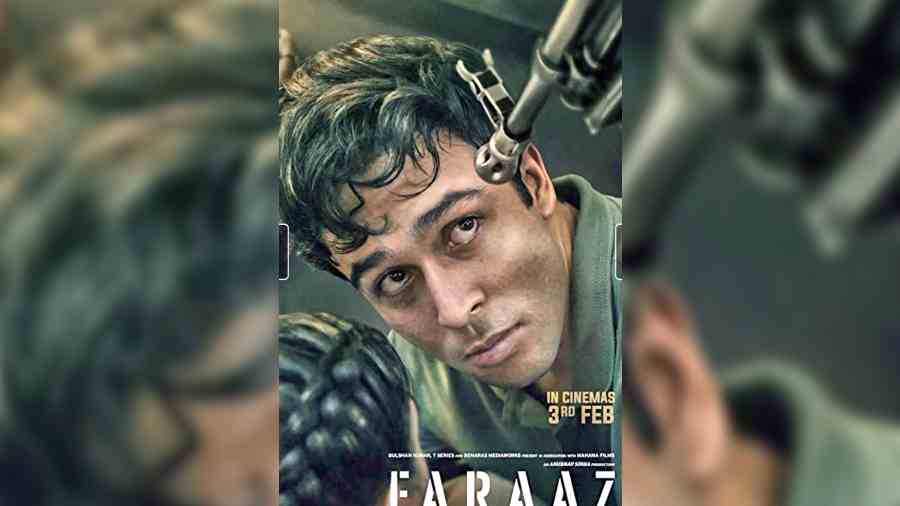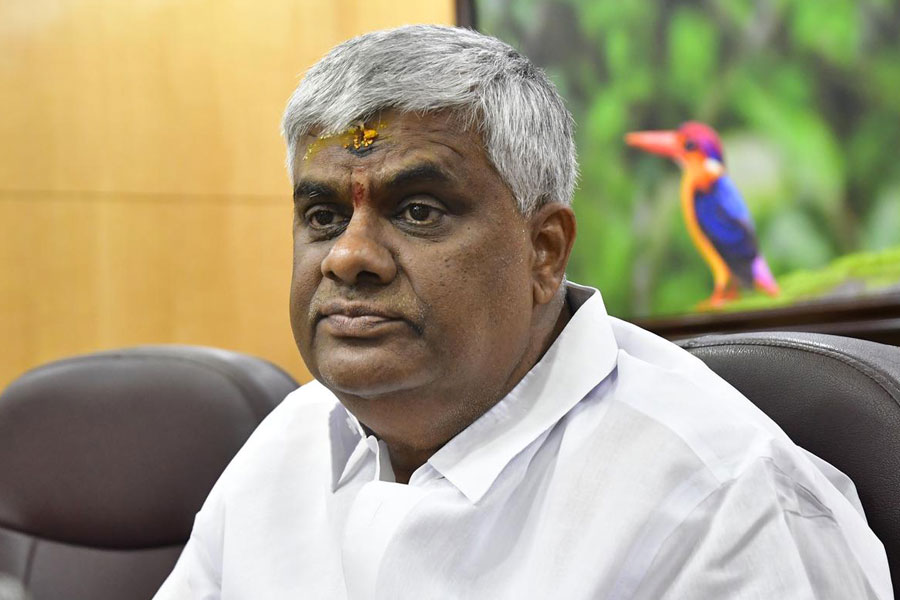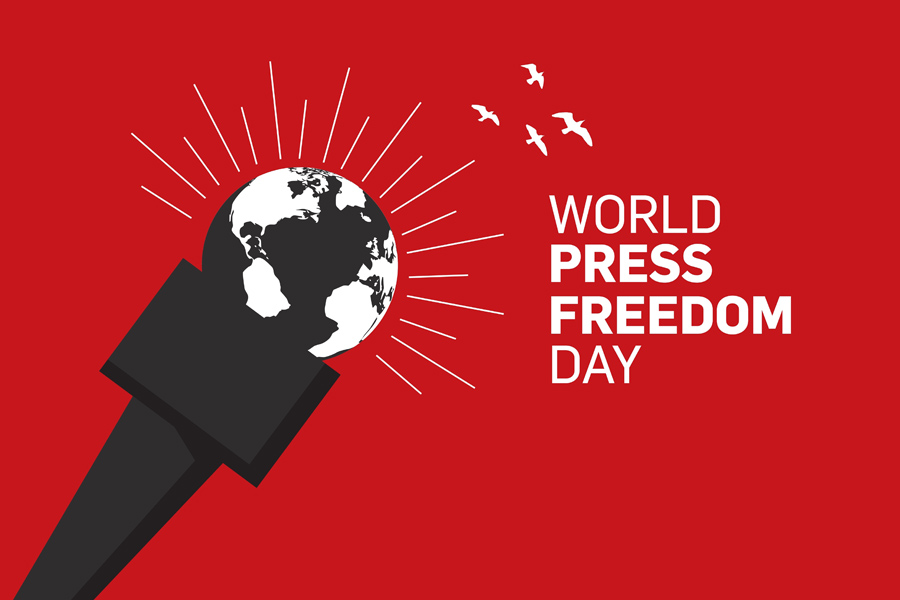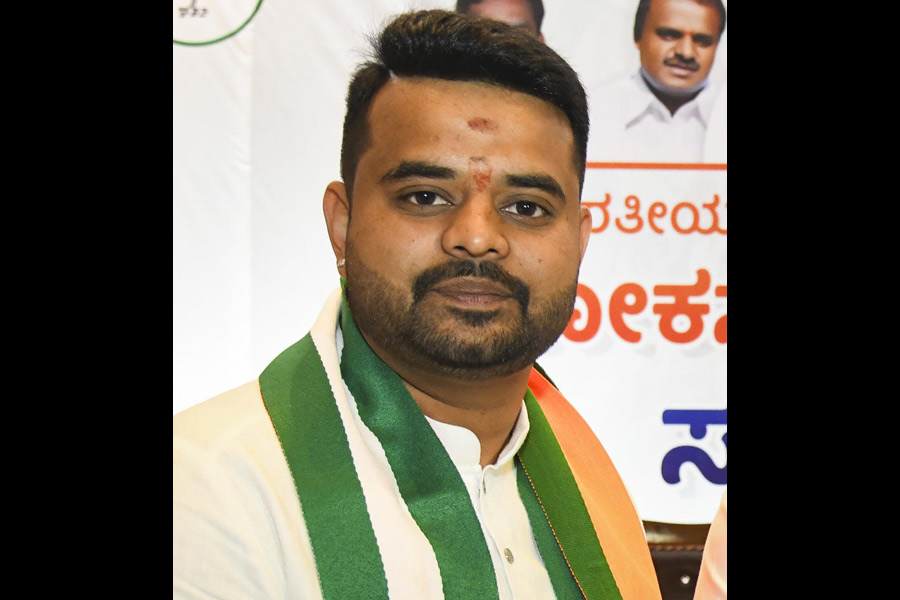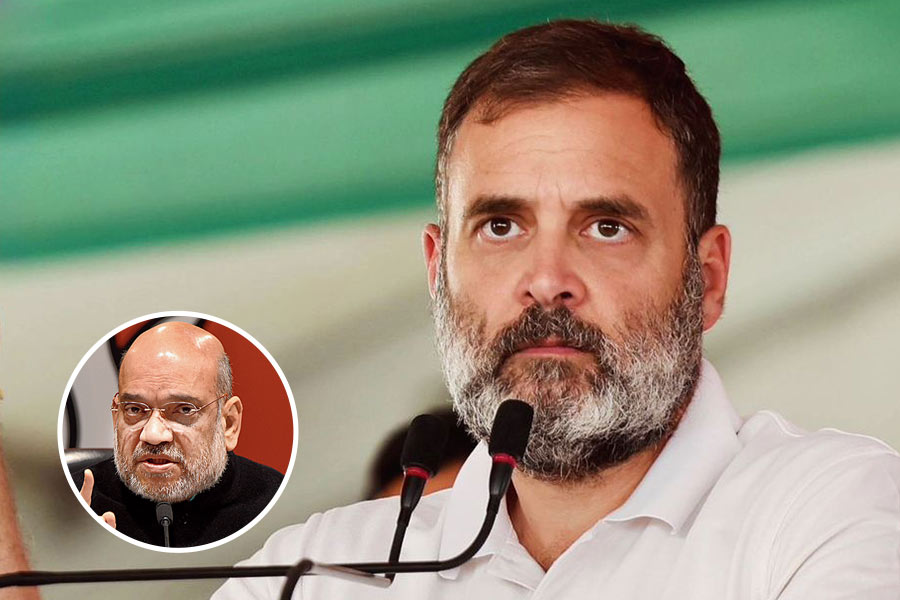The 2016 Dhaka shootout at the city’s prime Holey Artisan Bakery, which snuffed out many lives, including quite a few young ones, came with stories of courage, the chief among them being that of Faraaz Ayaaz Hossain. The 20-year-old stood up against the perpetrators and refused to leave his friends even when he was given the option (courtesy his religion) to leave. Faraaz was among the victims of that brutal attack that shook the world.
Hansal Mehta’s Faraaz, releasing in cinemas this Friday, tells the story of this exemplary act of courage. Starring debutant Zahan Kapoor (Shashi Kapoor’s grandson) in the title role, the film also has Paresh Rawal’s son Aditya Rawal entering films, playing the antagonist in this film produced by film-maker Anubhav Sinha. The Telegraph chatted with Hansal Mehta and Anubhav Sinha on the story, soul and spirit of Faraaz.
Both of you excel in making films about ordinary people thrust into extraordinary situations. Faraaz is one such film. Given that the incident on which the film is based took place almost seven years ago, did the idea come first or the story?
Hansal Mehta: The idea. Mahesh Bhatt (film-maker) had gone for an award function where Faraaz (Ayaaz Hossain) was posthumously rewarded for his bravery. He heard Faraaz’s mother’s speech and he was quite moved by it. He told me that there is this character, and perhaps there is a story in it. We started exploring and working on it. I got (writer) Ritesh Shah on board and we came up with a skeletal structure. That was the genesis of the story.
After the story, came the journey. This journey wouldn’t have been possible if Anubhav (Sinha) hadn’t put his faith in both the journey and the film-maker.
Anubhav, there is this group of film-makers that includes you, Hansal, Sudhir Mishra and Ketan Mehta who constantly support and prop up each others’ work. What made you want to officially back Faraaz?
Anubhav Sinha: Hansal and I have been talking for some time about making a film together. But then the pandemic happened and though we started working on other things, Hansal would bring up this story all the time. He felt an urgent need to tell this story, and I bought into that. He had the script ready, he was casting for it, he had done workshops and rehearsals with them.... He was raring to go and one day, we talked about it and said, ‘Let’s do this first’. And that’s how it happened.
Not many people know that the genesis of Mulk (Anubhav’s much celebrated 2018 film) lies in Shahid (the 2012 award-winning film directed by Hansal). Not the story or the idea, but the conviction, the perseverance that came with it. Hansal and I lost touch for a very long time, but when I watched Shahid I was like, ‘How has this guy made this film?! Who will watch it? It’s such a difficult film’. I called him and we connected and we spoke for a long time.
Around that time, I was toying with the idea of Mulk, which also sounded like an impossible film to make at that time. But then I got really inspired by Shahid and by Hansal.
So it’s been a constant process of inspiring each other. And then we thought it would be great to make films with each other. We are connected with each other’s films anyway... we read each other’s scripts, we give inputs, we watch the first cuts....
What really struck me about Hansal wanting to make Faraaz was his conviction and his passion. Passion, of course, is a very cliched word now....
Hansal: The word is desperation. Without desperation and hunger, this film wouldn’t have got made... I was desperate to tell this story. That’s how it became a film. The day I lose my desperation to tell a story, I will hang up my boots.
Anubhav: That’s the basic reason why we anyway tell stories. We are not making a potential blockbuster with a superstar where we are at least assured of a massive release and that the money invested will be recovered. Making the films that we make is a massive task anyway. So what can really drive you is the desperation to tell that story.
The Holey Artisan Bakery shootout shook everyone because both the victims and the perpetrators were young people and this took place in a cafe right in the middle of Dhaka. It could have happened to anybody. What impacted you the most about this incident that made you want to bring it to screen?
Hansal: I thought this is a chance to tell a story about the youth, a story about this generation. I don’t think we understand them enough. We put them into boxes and define them by social media. We keep talking about how they have lost human connection, or how they have attentiondeficit issues. There are things that we generalise about people of that age. We make rom-coms and comedies around them.
I was talking to Anubhav today and I was telling them that with Faraaz, we have almost made a very dark version of Archie comics. The cafe is like the one in Riverdale where they all hang out, but in the film, the difference is that it’s the scene of a bloodbath. I think it’s important to explore the psyche of these young people. How did somebody like Faraaz (played by Zahan Kapoor), who came from a position of privilege, have the courage to stand up against bigotry? The potential to open up a conversation about this generation is the focus of the film,
This is a story about humanity under threat from the misguided. We need to look at what drives an educated kid towards such a violent act. I believe that films can be catalysts and conversation starters... we can’t expect a film to deliver answers. In fact, my films raise more questions.
Anubhav: We look at youngsters as the Instagram and Snapchat generation, but what happens when kids that age suddenly face death for a reason that’s untenable for them... how do they react? How they face death with reason and logic is what we look at in this film, which is what happened with Faraaz.
Anubhav: We look at youngsters as the Instagram and Snapchat generation, but what happens when kids that age suddenly face death for a reason that’s untenable for them... how do they react? How they face death with reason and logic is what we look at in this film, which is what happened with Faraaz.
Hansal: Faraaz is not a conventional hero. He doesn’t take up arms or dive into an action sequence. Faraaz, I feel, is in the spirit of the film. Faraaz means ‘standing tall’ and that is the overarching spirit of the film. Standing tall in the face of terror and bigotry....: Faraaz is not a conventional hero. He doesn’t take up arms or dive into an action sequence. Faraaz, I feel, is in the spirit of the film. Faraaz means ‘standing tall’ and that is the overarching spirit of the film. Standing tall in the face of terror and bigotry....
Doesn’t this film reignite the ‘good Muslim’ vs ‘bad Muslim’ debate, which our films — and I am talking about the more commercial and slightly irresponsible ones — have milked to the maximum? By making that demarcation at the outset, aren’t you simply and unnecessarily reinforcing it?
Anubhav: Most people who see it like this are invariably bigots. If you are not a bigot, you will see it as a battle between good people and bad people. But those who are bigots will see them first as Muslims and then find the good or the bad in them. Like Hansal was telling me the other day that we could substitute the religion of this film with any religion. It talks about a radicalised form of religion and in that sense, it could be any religion as we see it now.
Hansal: People misinterpret religion to justify violence and aggression. The last line of the trailer when Faaraz says, ‘Mujhe tum logo se apna Islam waapas lena hain’, could be any religion. The idea that we need to reclaim our religion from the hands of bigots is applicable to religions other than Islam also. One has to look at the intent of the film. Faraaz doesn’t intend to incite hate... it aims to create a greater understanding that religion has nothing to do with a person being violent. Religion can also be a reason for one’s bravery and strength of character.
Both of you have said time and again that cinema is the only means for you to take on bigotry. Is that even possible in today’s day and age where cinema is such a soft target?
Anubhav: That changed recently! (Laughs)
Hansal: I think we overestimated the power of bigotry. This (the success of Pathaan) has shown that one can’t keep a good film and a good man (Shah Rukh Khan) down for long. As film-makers, we will keep making films. Daud aate rahenge, but we will keep swimming against the tide.

